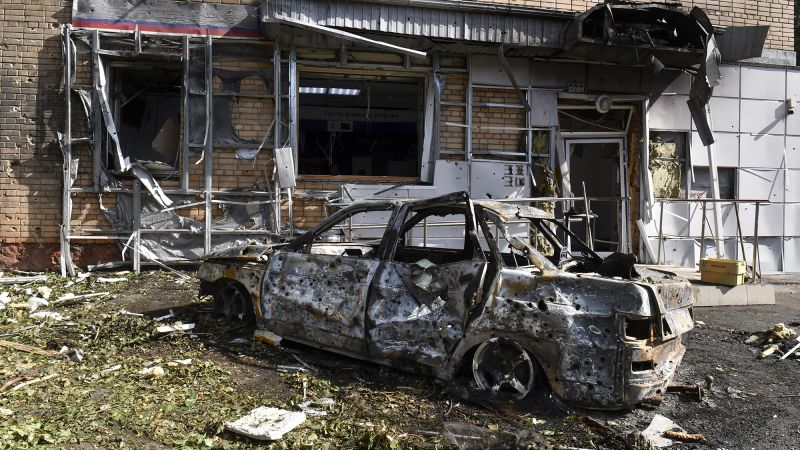CNN
—
Russian authorities were on Monday evacuating civilians from areas along the Ukrainian border, a week into Kyiv’s surprise cross-border incursion into Russian territory.
Vyacheslav Gladkov, the governor of the Belgorod region in southern Russia, said people living in the Krasnoyaruzhsky district were being relocated to safer places.
“We’re having a disturbing morning – enemy activities on the border of Krasnoyaruzhsky district. I am sure that our military will do everything to cope with this threat. But to protect the life and health of our people, we are beginning to relocate people who live in the Krasnoyaruzhsky district to safer places,” he said in a statement posted on his official Telegram channel.
The Ukrainian military has regularly attacked targets inside the Belgorod region with drones and missiles, but until last week Kyiv had not launched any official ground incursions across the border in the two and half years since the start of the full-scale war.
The operation, which started last Tuesday, has been shrouded in mystery. Ukrainian officials have for days remained silent, refusing to comment on reports of Ukrainian troops operating inside Russia.
Ukrainian President Volodymyr Zelensky finally confirmed Kyiv’s troops crossed into Russia on Saturday, saying in his nightly address to the nation that “Ukraine is proving that it really knows how to restore justice and guarantees exactly the kind of pressure that is needed – pressure on the aggressor.”
Moscow has been scrambling to contain the attack. Russian authorities imposed a sweeping counter-terror operation in the three border regions, but stopped short of declaring the attack an act of war.
The Institute for the Study of War (ISW), a US-based conflict monitoring group, said this was likely an attempt by the Kremlin to deliberately downplay the assault to prevent domestic panic or backlash over the fact that Russia was unable to defend its own borders.
“Russian President Vladimir Putin has refrained from officially declaring a state of war, has repeatedly demonstrated his unwillingness to transfer Russian society fully to a war-time footing, and has forgone declaring general mobilization as part of wider efforts to prevent domestic discontent that could threaten the stability of (his) regime,” the ISW said in its update.
The counterterrorist regime officially gives Russian authorities wider powers, including the ability to monitor telephone conversations and restrict communications and limiting the movement of people.

